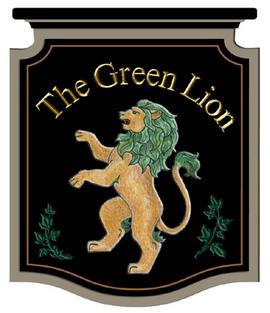[Originally written for a certificate course on Sustainability at Royal Roads University]
What is Sustainability? A shared alternative vision...
February 24, 2009 at 5:20pm
In response to the overly simplistic question, "What is the problem facing society, if any? How does Sustainable Development address this problem?", I wrote this position statement:
The current problem human society is facing - if I would dare to call it the singular problem - is evidenced in manifold ways throughout the world, far too many to name. We already know many of the effects of this inherently deep rooted problem: biophysical consequences such as the loss of biodiversity and animal habitats, enhanced climate change, soil erosion, desertification, environmental pollution, increased cancers and diseases, etc.; socioeconomic consequences such as the increasing gap in global poverty and affluence (or underconsumption and overconsumption), exploitative runaway capitalist systems causing the inequitable distribution of resources (both natural and human), marginalization and oppression of those being denied such resources, increasing mortality and birth rates among the global poor, etc.
So, if these manifold harmful effects emanate from a cause, or if these negative trends could be summarized by a fundamental problem we are facing as a society, I would suggest that we suffer from a dominant worldview, paradigm, and set of values that interpret the world around us and ourselves as being deeply isolated units in a vast system, wherein humans are separate from nature, from each other, and inevitably, from the amazing depths of ourselves as well. Much of our readings and each other's comments in this course so far have already mentioned this, and it is important to stress the issue. This paradigm is intrinsic to our contemporary, neo-classical economic model, which has been responsible for rapid industrialization, ecological destruction, massive social and political instability. Through 'economic development', this paradigm has developed a consumerist society that has dominated the individuals conception of ones purpose and/or place in the world, and that has reinforced the structural processes of exploitation (human and non-human) and environmental destruction for the sake of meeting our newly nurtured "needs".
We need to re-conceive ourselves. Assessing who we are in the scheme of things is one of the most important judgments we can make, because from that judgment everything else follows. Are we simply consumers of nature's wealth or are we members of nature's household? An ecological economic model needs to replace our current one, but that means shifting our values and worldview, starting with the local community we are in, and working outwards.
Sustainable Development, or better, the concept of sustainability, is an excellent resource to utilize in the struggle to re-conceive ourselves, collectively and individually. I am beginning to see sustainability less as a standard, or objective, for our society to achieve, and more of a voice, a vision, and a vehicle to take us away from the state of apathy, complacency and individualistic consumerism we are so easily seduced into. This is in accordance to how Robinson (2004) describes it essentially as a political act, not a scientific concept. Sustainability names the woes that afflict our world, revealing the destruction and death hiding behind our technological prowess and the elites' notion of continual progress and wealth-creation at any cost. Sustainability unmasks the dominant vision of unending progress under the 'business as usual' methods, as well as the vision of a distinct separation between humanity and nature. Practicing sustainability that knows and cares about our responsibility to, and impact on, others as an alternative to the dominant individualistic practice of consuming without care to our interconnectedness, can take us as communities and societies to a more abundant life for all. Of course, sustainability can be seen through anthropocentric and utilitarian lenses as well, which I think may 'prolong the human endeavour', as Chris Ashley states, but could also increase the net harm and destruction on earth in the long term if humans continue to act only in their apparent self-interest.
Sustainability has provided us with alternative voices and visions of our place in the world and our current state as a society. The Index of Sustainable Economic Welfare, Genuine Progress Index (GPI) and Well-being Index are important aspects of re-conceiving ourselves, and what the 'good life' is, offering more holistic assessments of humanity's progress than the GDP.
The best summarization I know of the imperative of sustainability is this, by Robert Costanza:
"Probably the most challenging task facing humanity today is the creation of a shared vision of a sustainable and desirable society, one that can provide permanent prosperity within the biophysical constraints of the real world in a way that is fair and equitable to all of humanity, to other species, and to future generations." (Costanza et al. 1997, An Introduction to Ecological Economics, 179).
This means sustainability is a social vision, and in the broadest sense, a political vision: one that affirms how we would like to live, given how we can live. This is "a vision of the good life that sees our good as within the good of the planet, now and always." (McFague, 2001, Life Abundant, 108). Such a vision may not solve all the world's problems, but it performs a critical role in illuminating the end of things as they currently are playing out, voicing an alternative to the death-creating addictions we are immersed in, and when practiced on a local, down to earth scale, sustainability can can take us back to the deeply rooted judgment of ourselves and affirm our belonging to nature, and affirm our responsibility for our actions towards the rest of nature. And from there, everything else follows.
